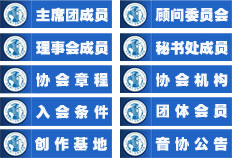
聂耳(1912-1935),原名聂守信,字子义(亦作紫艺),云南玉溪人。从小家境贫寒。1927年入云南第一联合师范学校(现昆明学院)学习。并开始学习小提琴。1931年入黎锦晖主持的明月歌舞剧社任小提琴手。1933年开始为左翼电影、戏剧作曲。1935年初,聂耳创作了著名的《义勇军进行曲》(后定为中华人民共和国国歌)。1935年1月聂耳任联华二厂音乐部主任。1935年7月1日,年仅23岁的聂耳在日本藤泽市游泳时不幸溺水身亡。他在不到两年的时间里,创作了37首歌曲,大多深刻地反映了当时劳动人民的思想感情,准确地塑造了工人、歌女、报童等劳动群众的音乐形象。在抗日救亡运动中,聂耳的这些歌曲产生了广泛深远的影响。他的代表作有《义勇军进行曲》、《大路歌》、《码头工人》、《新女性》、《毕业歌》、《飞花歌》、《铁蹄下的歌女》、《卖报歌》、《梅娘曲》等。他的音乐创作具有鲜明的时代感、严肃的思想性、高昂的民族精神和卓越的艺术创造性。
Nie er (1912-1935), formerly known as NieShouXin, word righteousness (also a purple art), yunnan yuxi. Born in a poor family. In yunnan in 1927 the first joint training school (now kunming college) to study. And start to learn the violin. In 1931 into the moon dance a of a drama club hosted Li Jinhui violinist. In 1933 started composing for left-wing films, or plays. In early 1935, nie er wrote the famous "volunteer march" (as the national anthem of the People's Republic of China). In January 1935 NieErRen lianhua music section, director of the second factory. On July 1, 1935, the age of 23, nie er fujisawa in Japan, unfortunate drowned while swimming. In less than two years, he wrote songs, 37 most profoundly reflect the labor people's thoughts and feelings at that time, accurate shape of workers, Alma, newsboy music image of the working people. In the anti-japan war.their, nie er wide-reaching implications of these songs. His representative works have "volunteer march", "DaLuGe", "dock workers", "new women", "graduation song, the song", "the hands of diao", "song newspaper", "mei niang qu", etc. His music creation has the bright time feeling and serious ideological content, high national spirit and the remarkable artistic creativity.


